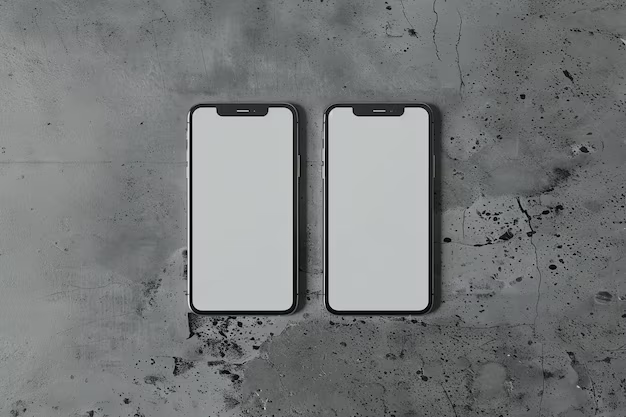Seamlessly Transfer Data from One Android Device to Another: A Comprehensive Guide
In our fast-paced digital world, upgrading to a new Android phone can be exciting yet daunting, especially when considering the data transfer process. Imagine leaving your old device behind without losing your treasured photos, essential apps, and important contacts. In this guide, we’ll walk you through various methods to effortlessly transfer data from one Android device to another, ensuring a stress-free experience.
Why Transfer Data When Upgrading Your Android Phone?
Switching to a new phone offers numerous advantages—faster processors, improved cameras, and longer battery life. However, maintaining continuity in your digital life is essential, which means carrying over your data seamlessly. Whether you're an avid gamer, a business professional, or just a regular user, transferring data is crucial to preserve your digital ecosystem and avoid starting from scratch.
Preparing for Data Transfer
Before diving into transfer methods, it's essential to prepare both devices adequately. Here’s how:
1. Update Your Devices
Ensure both source and target devices have the latest software updates. This can prevent compatibility issues during data transfer.
2. Backup Important Data
Consider creating backups as a safety net. Use Google Drive or other cloud services to secure your photos, contacts, and other data.
3. Charge Your Battery
During the transfer, it’s vital to have both devices charged above 50% to prevent interruptions. This ensures a smooth and uninterrupted process.
Key Takeaways:
- 🔄 Always update your devices before transitioning.
- 💾 Create backups for essential data.
- 🔋 Keep devices charged to avoid mid-transfer disruptions.
Transfer Methods: Exploring Your Options
There are several built-in and app-based methods to transfer data between Android devices. Let's explore them:
Using Google’s Backup Service
Google’s ecosystem offers a straightforward way to transfer your data.
Steps:
Enable Backups:
- Go to Settings > System > Backup.
- Toggle on Back up to Google Drive.
Set Up New Device:
- During setup, log in with your Google account.
- Select Restore from Google Backup when prompted.
Verify Data:
- Ensure your apps and photos appear as expected on your new device.
Using Samsung Smart Switch
Samsung Smart Switch provides a simple solution for Samsung users:
Steps:
Download App:
- Install Samsung Smart Switch on both devices from the Google Play Store.
Connect Devices:
- Use a USB cable or opt for the wireless transfer feature.
Select Data:
- Choose the data you wish to transfer.
Initiate Transfer:
- Follow prompts and wait for completion.
Bluetooth and Nearby Share
For smaller data sizes, Bluetooth or Nearby Share are viable options:
Steps:
Activate Bluetooth or Nearby Share:
- Enable Bluetooth or Nearby Share on both devices.
Pair Devices:
- Find and pair with the target device.
Select Files:
- Choose files to share and send them.
Third-Party Apps
Several third-party applications, like SHAREit and Xender, offer robust solutions:
Steps:
Install App:
- Download chosen app on both devices.
Launch & Connect:
- Follow in-app instructions to connect devices.
Transfer Data:
- Choose specific files or categories for transfer.
Managing Contacts, Messages, and Media
Ensuring smooth transition of your contacts, messages, and multimedia is critical. Let’s examine how:
Transferring Contacts
Google Account: Use your Google account for automatic contact synchronization. Verify via Contacts app.
SIM Card Transfer: Export contacts to SIM and import them on the new phone via Contacts > Import/Export.
Transferring Messages
1. Google Messages:
- Use Google Messages to back up and restore SMS/MMS conversations.
2. Third-Party Apps:
- Download apps like SMS Backup & Restore for secure message transfer.
Pictures and Videos
Google Photos: Back up media to Google Photos for easy access on new device.
USB or Bluetooth: Physically transfer files using USB cables or Bluetooth for smaller batches.
Tips for a Smooth Transition
To ensure a hassle-free switch, follow these best practices:
Check Compatibility:
Not all apps and files perfectly port over—prepare for slight discrepancies.
Evaluate Storage Needs:
Newer devices may have different storage layouts; adjust accordingly.
Test New Setup:
Ensure everything functions as expected before phasing out the old device.
Common Issues and Troubleshooting
Despite preparations, you might face some common hurdles. Here are solutions:
Slow Transfer Speed
- Solutions:
- Use a higher bandwidth connection.
- Transfer data in batches for large quantities.
Data Loss Worries
- Solutions:
- Double-check backups before starting.
- Re-attempt transfer if errors occur.
Application Glitches
- Solutions:
- Update apps post-transfer for compatibility.
- Reinstall stubborn apps to resolve issues.
Visual Summary: Transfer Tips & Tricks
Here’s a quick visual guide to remember key steps:
| Tip 💡 | Description |
|---|---|
| 💾 Use Backups | Always create a backup before transferring |
| 🔄 Google Ecosystem | Rely on Google services for simplicity |
| 📱 App Solutions | Consider third-party apps if needs arise |
| 🔋 Power Up | Keep devices well-charged |
| ✅ Compatibility Check | Verify app and file compatibility |
Moving Forward with Confidence
Transferring data to a new Android device doesn't need to be a cumbersome task. By planning ahead, utilizing effective methods, and understanding the potential challenges, you can ensure a smooth transition to your new device. Whether using built-in services like Google and Samsung or relying on third-party apps, embracing technology can make the transfer process simple and satisfying. Welcome to your faster, more advanced digital experience!

Related Topics
- How Can I Transfer a Video From Iphone To Computer
- How Can I Transfer Apps From Iphone To Ipad
- How Can I Transfer Apps From One Iphone To Another
- How Can I Transfer Contacts From Iphone To Iphone
- How Can I Transfer Contacts From One Iphone To Another
- How Can I Transfer Data From Iphone To Android
- How Can I Transfer Data From Iphone To Iphone
- How Can I Transfer Data From Iphone To Samsung
- How Can I Transfer Files From Android To Pc
- How Can I Transfer From Iphone To Samsung
